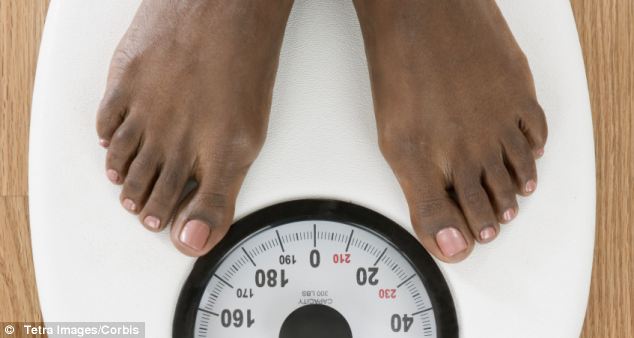by Kristen A Carter M.S.
False Hope Syndrome Reveals a Big Problem with Dieting
How to overcome past dieting failures.
THE BASICS
- “False Hope Syndrome” is believing that a diet will be effective despite it having failed in the past.
- This mindset could be driven by a need for control over the dieting process.
- False Hope Syndrome may lead people to overestimate the amount of weight they’ll lose, how quickly they’ll lose it, how easy it will be, and the benefits weight loss will provide.
- To increase the chances of success, people can acknowledge that losing weight is a long-term process, and view setbacks as an opportunity to learn and grow.

Source: Gerd Altmann/Pixabay
In this country, 40 percent of us are on a diet at any given time. Many times, people have gone on a diet four, five, or even ten times.
The question is: Why do people continue to use the same strategy to lose weight time and again, even though the effort repeatedly fails?
What Is False Hope Syndrome?
For an answer, we have to take a look at what the research tells us about the “diet mentality.” Part of the mentality can be described as false hope, or the “False Hope Syndrome.”1 One way of looking at this is that dieters are persistently convinced that their next attempt will work, in spite of evidence to the contrary. Clinging to false hope actually gives the dieter a feeling of control over the dieting process. That sense of control all but eliminates access to lessons that could be learned from any prior failed attempts.
According to diet behavior researchers Polivy and Herman (2002), False Hope Syndrome plays out in the dieting process in four ways:
- Overestimation of the amount of weight that will be lost
- How quickly the weight will be lost
- The ease with which this will happen
- An unrealistic expectation of positive effects on the rest of their lives
Why are these attitudes and expectations so prevalent and how do they lead to diet failures?
According to Polivy and Herman, one of the issues that stem from these beliefs is that the dieter did not try hard enough. Dieters assume that changing food intake involves inhibiting behaviors and not giving in to temptation. Understandable. This can easily happen since eating in itself is extremely rewarding. The logical conclusion is that one must be highly motivated and exert a great deal of willpower in order to succeed. article continues after advertisement
RELATED: It Might Not Be Your Fault That You Can’t Lose Weight
Reading between the lines, false hope actually lays the blame on the diet itself, as not being up to the task. This gives dieters hope that the next attempt at a different diet will be more successful. Unfortunately, this means that many dieters are looking to external factors rather than to their own internally-driven attitudes and behaviors. Down the road, this means that there is not enough mental preparation for difficulties that will inevitably arise.
In addition, we humans like to feel that we are in control over a given situation. Here is where false hope thrives. False hope gives us the illusion of control. If we are clinging to unrealistic scenarios, we can think that a big change is going to happen. Many of us think that the perfect diet will finally get us to lose weight forever. In the future our lives will improve, and we will be happier.
Media and marketing often contribute to creating false hopes and unrealistic expectations. Marketing for diets is often couched in terms of being easy or even effortless. In fact, the diet industry thrives by making promises and then getting repeat customers.2
To summarize, we have:
- A diet mentality blames the diet for the failure, in addition to creating feelings in the dieter that they have not tried hard enough. This is actually two sides of the same coin. The assumption is that dieting is the way to overcome being overweight. This keeps dieters trying again and again, rather than reflecting on their own habits and behaviors and possibly changing their approach.
- A situation where reflecting on how to change habits and behaviors can be discouraging, depressing, or even overwhelming. Often dieters are likely to stick with the limited options of either being on a diet or not being on a diet. Choosing false hope within these options can seem much more attractive.
- We also have media and marketing making dieting look easy. This can reinforce thinking that losing weight is just a matter of finding the right diet.
How to Diet Successfully
The fact is that losing weight, and keeping it off, is difficult. The evidence for this is overwhelming. Very few people manage to succeed, particularly when using dieting as the model.
It is possible to abandon the process and the false hopes that have not panned out in the past, and replace them with a more realistic and scaled down approach. Two major mental shifts need to accompany the new effort.
- Realize that losing weight and keeping it off is a long-term project. This may feel daunting. But setting up a series of small changes in habits and behavior can lead to progress that can be celebrated all along the way as specific strategies that have stayed with you. This is in contrast to strategies and programs coming from others that didn’t work.
- A shift from seeing each effort as a personal failure to seeing it as a chance to evaluate and learn. This would include taking a look at the diet strategy as one that has not worked in the past and being open to exploring one’s own habits, behaviors, assumptions, and attitudes that may be keeping one in false hopes. This includes letting go of the ideal of achieving fast, easy, weight loss that “changes our life” and instead seeing that as “false hope.” Then it is possible to start exploring how to make a series of small changes, an approach that has been proven to be effective.3,4,5
“It is not weight loss that is impossible; it is unrealistic weight loss.”

